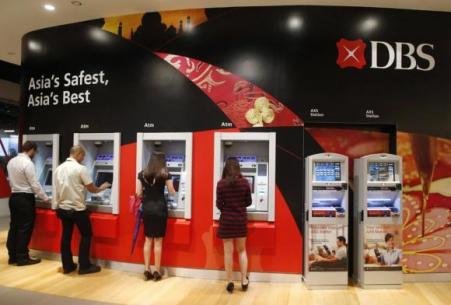By Reuters -
(Reuters) - Some banks are adopting stricter lending criteria for China's state-owned enterprises (SOEs), demanding collateral from some companies they used to deem as safe as government debt, as Beijing tries to reform its bloated firms and the economy slows.
Singapore's DBS Group, which recently suffered a loss on a bad loan to an SOE-related firm it had assessed as risk-free, plans to launch a 'decision grid' to assess the creditworthiness of SOEs, according to draft internal risk guidelines reviewed by Reuters.
A banker at Taiwan's Chang Hwa Commercial Bank said that from the beginning of this year his bank would only lend to state-owned Chinese companies that provide collateral, in recognition that SOEs were no longer risk free.
Such changes in policy suggest some foreign banks are preparing for a rise in defaults in the world's second-largest economy, which is growing at its slowest pace in a quarter of a century and where the government is trying to make the state sector more efficient.
DBS will now lend more conservatively to SOEs seen as receiving less government support, as China plans to prioritize SOEs in strategic sectors.
The January-dated DBS document said: "Not all SOEs receive the same degree of government support. It is our further belief that the differentiation of such support will widen in the future as the government continues to pursue market economy."
DBS will now divide SOEs into tiers according to their likely level of government support, with subsidiaries considered more risky than top-level holding companies.
Group companies that are not consolidated into the parent SOE's financial statements will be evaluated as an ordinary borrower, the decision grid shows.
DBS effectively acknowledges that lenders can no longer take for granted implicit support from above.
"Compared to ordinary corporates, implicit support obtained from the parents of SOEs are subject to higher risks because of the risk of policy and people changes," the document said.
A DBS spokeswoman declined to comment publicly on the specifics of the policy change.
"It is still business as usual for us in China. With slower regional economic growth, we continue to be disciplined and watchful of risks in all the markets we operate in,” she said in an emailed statement.
A spokeswoman for Chang Hwa Commercial Bank did not return calls seeking comment.
COLLATERAL DAMAGE
The changes at DBS and Chang Hwa are evidence of a broader trend to tighten lending in China among foreign banks, and the practice of demanding collateral is likely to increase so they can recover some value when loans go bad.
Global bank Standard Chartered (LONDON:STAN) Plc said on March 4 in its annual results statement it had increased the level of collateral it holds by 4 percent, in response to rising bad loans in China, India and the commodities sector.
"The requirement for more collateral is essential," said Jiahe Chen, chief strategist at Cinda Securities. "As the economy falters and SOEs become more market-orientated, there will be more defaults."
"Perhaps for Chinese banks the government still have some arrangements, but for foreign banks the impact of the market is more severe," he added.
About 70 percent of loans made in the fourth quarter of last year in China were collateralized, with the borrower typically pledging land or manufacturing plants, according to a survey of 2006 industrial firms published by Professor Jie Gan of the Cheung Kong School of Business.
DBS's decision to change its risk assessment procedures for loans to SOEs was galvanized in part by a large loss it suffered on a loan to Yantai Penghui Copper, a company backed by the city of Yantai in China's Shandong province, sources with direct knowledge of the matter told Reuters.
Yantai Penghui Copper declined to comment.
